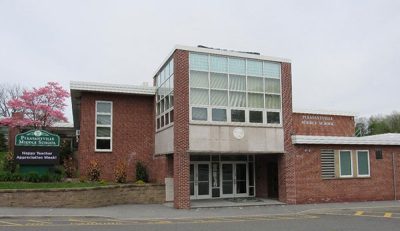Pleasantville School Voters to Decide on Middle School HVAC Bond
News Based on facts, either observed and verified directly by the reporter, or reported and verified from knowledgeable sources.

A $2 million proposition facing Pleasantville School District voters next week to replace the antiquated heating, ventilation and air conditioning system (HVAC) at the district’s middle school may seem like a relatively small project.
But for the students and staff at Pleasantville Middle School who must endure stifling heat in areas of the building and the district officials who are entrusted with the health and safety of the students, the May 17 bond issue is as critically important as a much larger referendum.
Superintendent of Schools Dr. Tina DeSa said aside from the comfort, the COVID-19 pandemic has highlighted the need for well-functioning systems in buildings, particularly one where hundreds of people come and go every day. The middle school is the only building in the district without a building management system relating to ventilation and air circulation, she said. Some parts of the current system date back to the 1950s.
“I think it’s about the health and safety of our students and staff and that we need to provide a learning environment that is, in fact, conducive to learning, and allows the teaching and learning process to happen,” DeSa said.
She said in September and again during portions of the final two months of the academic year, some of the spaces can heat up so much that classes have to be relocated, which causes scheduling headaches for teachers and staff. Sometimes in winter the heat is so uneven the temperatures can be suffocatingly warm or ice cold.
Officials stressed that although the district will need to borrow up to $2 million to undertake the project, it promises to be nearly tax-levy neutral. Superintendent of Business John Chow said the work is estimated to cost about $6 million but the district can already account for about two-thirds of the money for the project.
First, there is $600,000 left over from the $8.9 million bond that was approved by voters in 2019. Then, the district is prepared to use $1,367,661 in money it received from the federal government to pay for COVID-19-related expenses.
Between the current year’s budget and the proposed 2022-23 spending plan that residents will also vote on next week, the district will have transferred $710,000 to the capital fund to go toward the project. It will then use a little more than $1.3 million in fund balance along with the $2 million bond, should it be approved.
DeSa said Pleasantville is in line to receive 51.6 percent in state aid on all of the money it is putting into the project. Only the federal grant money will not count toward state reimbursement.
Based on the most recent interest rates, which are expected to continue rising, the district would probably come about $40,000 short of having no tax impact, Chow explained. However, that $40,000 expense would be divided over the anticipated 15-year life of the bond and spread out among all of the district’s property owners. Therefor it would have a negligible impact on taxes, he said.
“It’s very minimal,” Chow said. “Probably the interest rate is going up. That’s why we don’t want to mislead anyone. We’re not saying it’s a tax-levy neutral bond.”
Work on the installation of the new system would be done over the summer in 2023, Chow said. Furthermore, the district is installing a new electrical system in the school with money that came from the 2019 bond. That will be done this summer or next.
DeSa said passage of the bond would allow the district to complete the project at once rather than on a piecemeal basis, thereby saving the district money.
“It doesn’t account for having to redo the contractor, redo the construction manager,” DeSa said. “All these added costs come in every time you do a capital project.”

Martin has more than 30 years experience covering local news in Westchester and Putnam counties, including a frequent focus on zoning and planning issues. He has been editor-in-chief of The Examiner since its inception in 2007. Read more from Martin’s editor-author bio here. Read Martin’s archived work here: https://www.theexaminernews.com/author/martin-wilbur2007/
